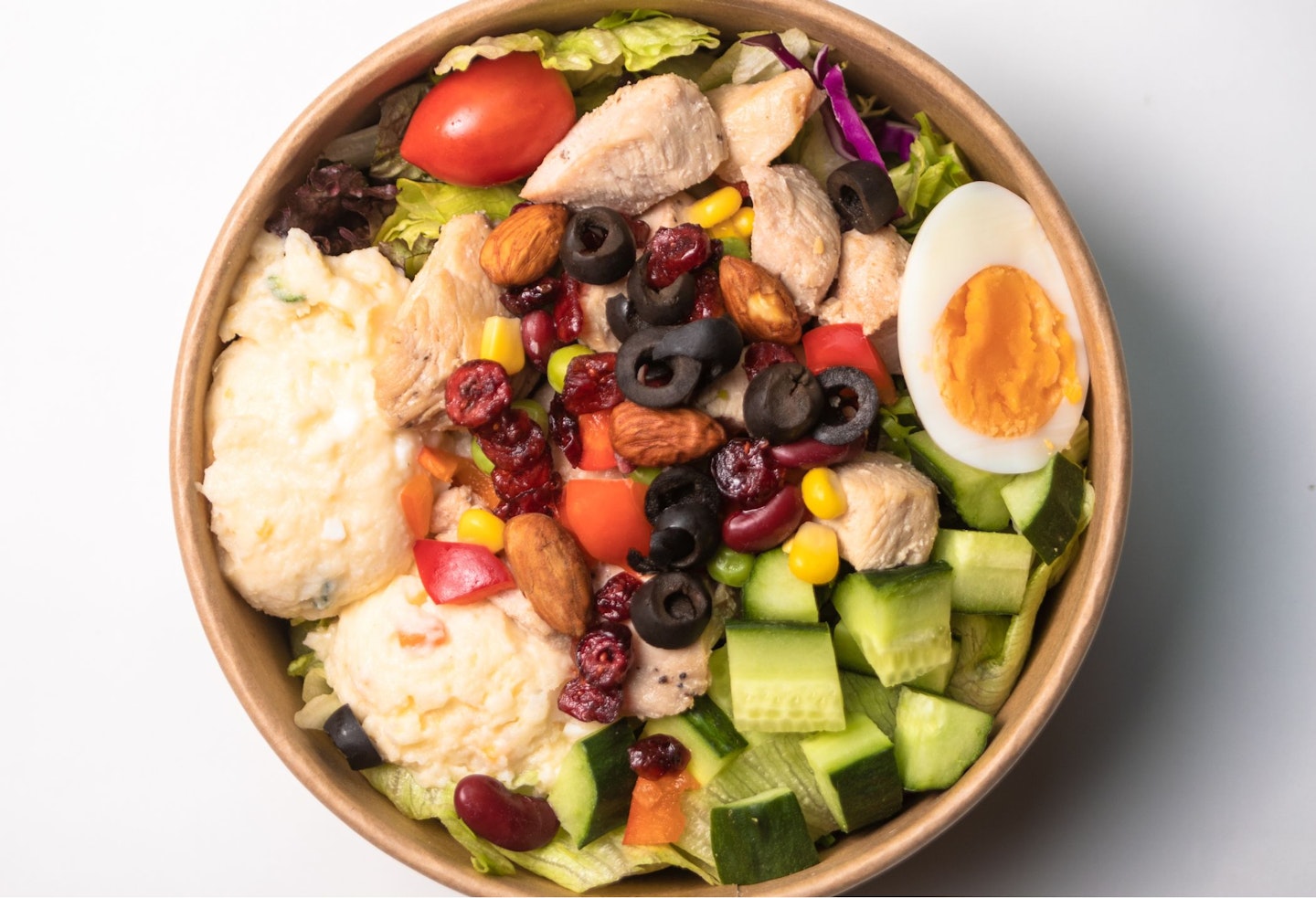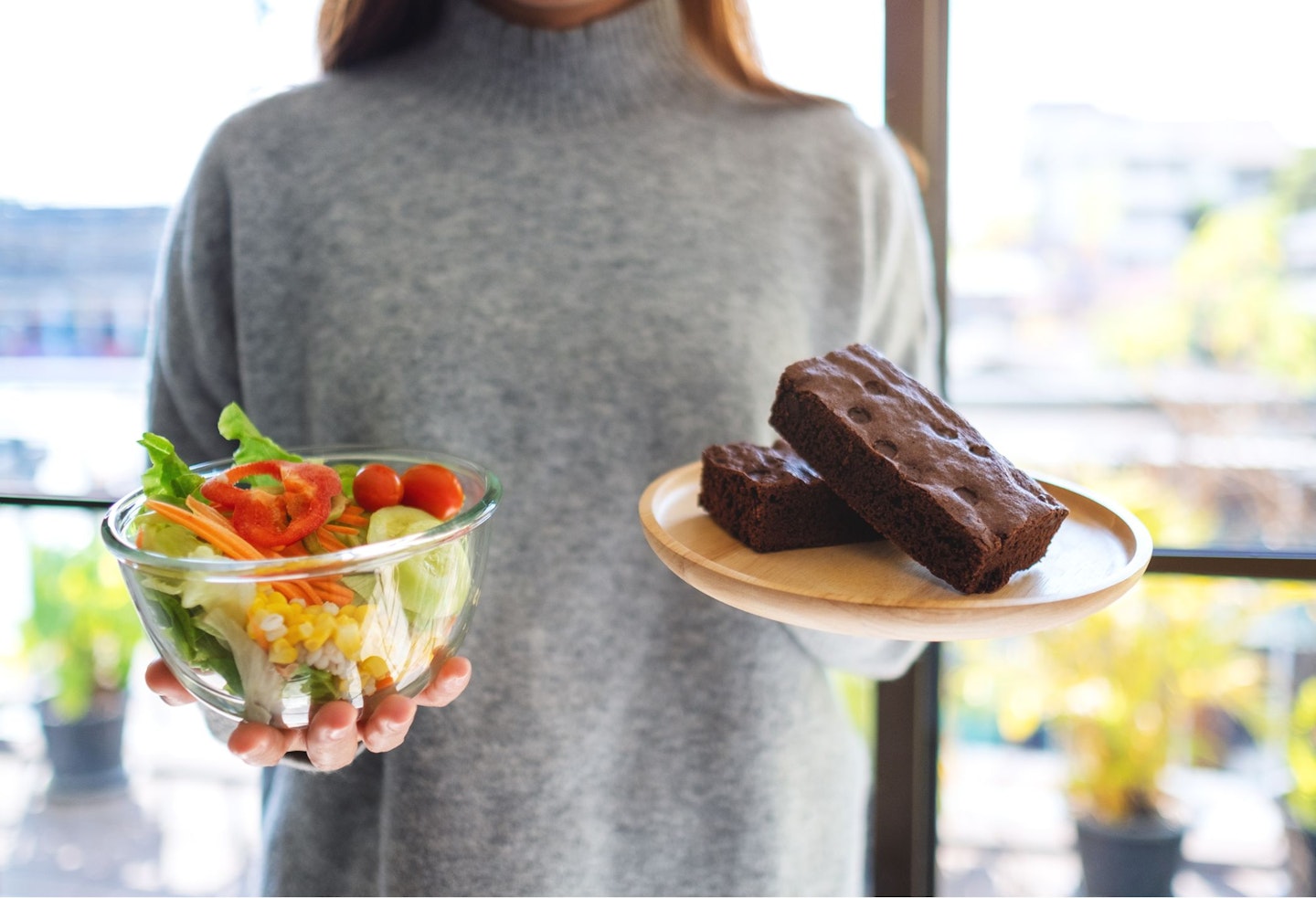Let’s be honest—trying for a baby isn’t just about what happens in the bedroom. There’s so much you and your partner can do outside of it to set the stage for conception, and your diet is a great place to start.
Experts agree that what you eat can have a significant impact on fertility, egg health, and hormone balance. By focusing on nutrient-rich foods, you’re not only improving your chances of conceiving but also preparing your body to support a growing baby. Think of it as fueling your body with the essential vitamins and minerals it needs to create life.
To help you navigate the world of fertility-friendly foods, we spoke with Marilia Chamon, a registered nutritional therapist and founder of Gutfulness Nutrition. She shared expert advice on the nutrients and foods to include, as well as which habits to ditch when you’re trying to conceive.
Key nutrients that naturally boost fertility
According to Marilia, incorporating these essential nutrients into your diet can improve fertility for both men and women:
Folate (Vitamin B9)
“Essential for DNA synthesis and cell growth, folate is crucial during early pregnancy. Rich sources include leafy greens like spinach and kale, legumes, and fortified cereals.”
Zinc
“Important for sperm production and ovulation, zinc is found in meat, shellfish (especially oysters), dairy products, nuts, seeds, and whole grains.”
Vitamin D
“Involved in regulating reproductive hormones, vitamin D is linked to improved fertility. It can be sourced from fatty fish like salmon and mackerel, egg yolks, fortified foods, and sunlight exposure.”
Omega-3 Fatty Acids
“These healthy fats reduce inflammation, support hormone regulation, and improve egg quality. Sources include fatty fish, flaxseeds, chia seeds, and walnuts.”
Antioxidants (Vitamins C, E, and Selenium)
“Antioxidants protect sperm and egg cells from oxidative stress, which can damage DNA. They’re abundant in citrus fruits, berries, nuts, seeds, and leafy vegetables.”
Iron
“Adequate iron levels support ovulation and prevent anemia, which can affect fertility. Red meat, poultry, beans, lentils, and fortified cereals are excellent sources.”
Coenzyme Q10 (CoQ10)
“CoQ10 supports energy production in cells and improves both sperm quality and egg maturation. It’s found in organ meats, fatty fish, spinach, and whole grains.”

Foods to add to your preconception diet
While there’s no magic food to guarantee conception, Marilia emphasises the importance of a well-rounded diet.
Protein
“Ensure your diet includes a variety of protein sources like lean meats, fish, eggs, dairy, legumes, and plant-based proteins like tofu and quinoa.”
Healthy fats
“Unsaturated fats like omega-3s play a key role in hormone production. Sources include fatty fish, nuts, seeds, avocados, and olive oil. Avoid trans fats, which can negatively impact fertility.”
Complex carbohydrates
“Focus on whole grains, fruits, and vegetables for a steady release of energy and hormonal balance. Avoid excessive refined carbohydrates and sugars, which can lead to insulin resistance and disrupt hormones.”

Foods and habits to avoid
Certain foods and lifestyle habits can hinder your chances of conceiving. Here’s what Marilia advises steering clear of:
Ultra-processed foods
“These disrupt hormonal balance and often lack essential nutrients. Stick to whole, minimally processed foods.”
Alcohol
“Alcohol can disrupt hormone levels and negatively affect sperm quality and ovulation. It’s best to avoid it entirely when trying to conceive.”
Skipping meals
“Irregular eating patterns can disrupt blood sugar levels and hormone balance.”
Crash dieting
“Rapid weight changes can throw hormones out of balance, interfering with ovulation and sperm production.”
Ready to stock your cart?
If you’re trying to conceive, these 19 fertility-friendly foods are worth adding to your shopping list. With a little planning and the right ingredients, you’ll be giving yourself the best possible start on your journey to parenthood.
Tomatoes
Packed full of a nutrient called lycopene, which has been found to boost sperm count by up to 70 per cent and increase swimming speed. Two brilliant reasons to encourage your partner to include more tomatoes in his diet.
Almonds
Just a handful of almonds a day can boost your man’s sperm health. They contain vitamin E, which is an antioxidant that helps to protect the DNA in both sperm and eggs. Plus, it’s thought to increase sperm production.
Bananas
A banana should be your go-to mid-morning snack if you’re trying for a baby. Each one is packed with vitamin B6, which regulates the hormones and is needed for good egg and sperm development.
Asparagus
Delicious roasted and teamed with egg or popped in a salad, asparagus is easy to add into your meals – and well worth doing, too. It’s packed with folic acid, which has been found to reduce the risk of ovulation issues and will help protect your unborn baby from neural tube defects if you do conceive. It is also a great source of vitamin K.
Citrus fruits
Lemons, oranges and limes – they’re all packed with Vitamin C, which improves sperm quality and stops them clumping together. Vitamin C is also believed to help trigger ovulation so it's worth tucking into plenty of citrus fruits as a couple.
Brussel sprouts
This festive food may not be everyone’s favourite veg, but it’s packed with fertility boosting properties. They contain folic acid, great for improving fertility, and are filled with vitamins and nutrients that help women absorb balanced levels of oestrogen and help the body get rid of excess hormones. Forget the mushy products of Christmases past and griddle or roast with a little oil and garlic.
Carrots
Filled with carotenoids that give carrots their colour, this veg is ideal for boosting your conception chances.Research has found that carotenoids help sperm swim towards an egg, improving sperm performance by up to eight per cent.
Broccoli
It’s loaded with folic acid, which is essential in early pregnancy for preventing neural tube defects (you should still take a supplement, though). Heap broccoli onto your man’s plate, too – in a recent study, men with high intakes of folic acid were shown to have healthier sperm.
Milk
But it’s got to be the full-fat version. Why? Women who have at least one daily portion of full-fat dairy reduce theirrisk of infertility by more than 25 per cent. The fat in dairy is thought to play a role in ovarian function.
Oysters
As well as being famous for being an aphrodisiac, oysters are bursting with zinc, which is crucial for conception. If you’re lacking in zinc, your menstrual cycle might be interrupted – slowing down the release of your eggs. Zinc is also an essential mineral when it comes to sperm development.
Dark chocolate
You shouldn’t be as hard-pressed to encourage your man to up his chocolate intake – but make sure it’s high in cocoa levels. It contains amino acid that has been proven to double sperm and semen volume and is also filled with antioxidants, which defend against free radicals and toxins linked to male infertility.
Eggs
Eggs contain vitamin D, thought to help increase fertility levels in women and linked to healthy semen quality and sperm motility in men. Plus they’re a pretty healthy breakfast option to add to your day.
Mackerel
This fish should definitely be your friend when trying for a baby. It’s bursting with fatty acids that help keep your reproductive system strong and your partner’s cholesterol levels low – allowing his sperm to mature properly.
Sunflower seeds
Packed with zinc – the most important mineral for male and female fertility – sunflower seeds are great for getting your body in baby-making mode.
Garlic
Garlic is a great conception booster for men. It contains allicin, which improves blood flow to his sexual organs and protects sperm from damage, and selenium, an antioxidant that improves sperm quality.
Blackberries
Packed with antioxidants, which help your body deal with toxins and supercharge the health of all your body’s cells. And there’s some evidence antioxidant vitamins may help improve fertility in both men and women. If you’re not a fan, try other berries, such as raspberries and blueberries, which are all rich in antioxidants.
Green tea
Excess caffeine can delay ovulation, so ditch the latte in favour of green tea. While it does contain some caffeine, it has much less than coffee, and is packed with antioxidants, important for the health of all your body’s cells (antioxidants have also been shown to help improve male subfertility, so swap his coffee for green tea too).
Salmon
It’s a great source of essential fatty acids, which can help balance hormones and nourish all the cells in your body. Plus it’s rich in protein, and a recent American study found a diet high in protein tends to result in better quality eggs and sperm. Aim for two weekly servings of oily fish, but no more than that, as it can contain toxins.
Chicken
Protein is really important for your egg production – and gram for gram chicken is a great source. But hold off on that Atkins diet while trying to conceive, as high-protein diets aren’t advised pre-pregnancy. Get your fill by trying out Mary Berry’s parmesan-crusted chicken recipe or rustle up a delish griddled Vietnamese chicken with salad.
Want to save this list to your phone? Here's a handy list to keep to hand next time you're doing your food shop.

How long does it take to see benefits?
“Typically, it can take about 3 to 6 months for dietary changes to reflect in reproductive health,” says Marilia. Consistency is key, so start making those changes today to give your body the best chance at conceiving.
About the author
Sophie Knight is a hypnobirthing teacher and freelance journalist. She is a mum of two, and an experienced product tester. Passionate about maternal mental health, Sophie is also a Mental Health First Aider, and a Reiki healer.
About the expert
Marilia Chamon is a London-based registered nutritional therapist specialising in gut health and the founder of Gutfulness Nutrition. Trained on the use of the low FODMAP diet through Monash University, certified in Applying Functional Medicine in Clinical Practice by The Institute for Functional Medicine (IFM) and a SIBO-trained practitioner, Marilia brings a highly qualified, science-backed approach to her nutrition practice.
